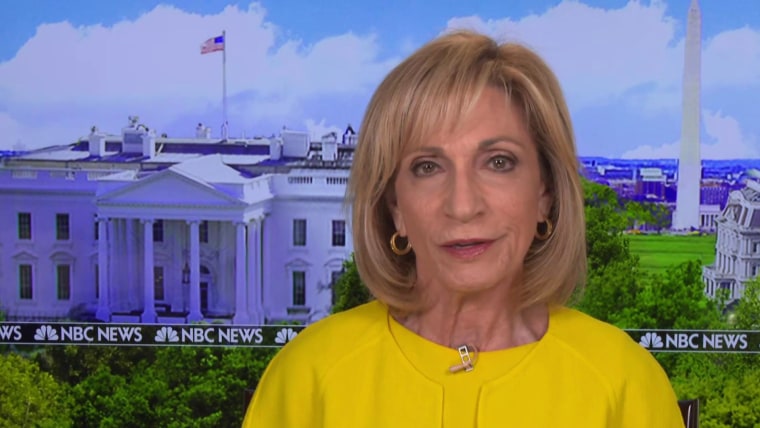WASHINGTON — Alarmed over what they call “potential abuses,” a pair of congressional committees are demanding extensive documents from the State Department about a series of extravagant, government-funded dinners hosted by Secretary of State Mike Pompeo and revealed by an NBC News investigation this week.
The chairs of the House Oversight and Government Reform Committee and the House Foreign Affairs Committee, in a joint letter Thursday to Pompeo, raised concerns that there was no clear official purpose for the roughly two dozen dinners, which Pompeo had hosted in the historic Diplomatic Reception Rooms until the coronavirus pandemic shut them down in March.
“We are concerned about a new media report this week that describes a series of lavish dinners that you have been hosting with prominent Republican officials, commentators, and public figures — all at taxpayer expense,” wrote the chairs of the two committees, Reps. Carolyn Maloney and Eliot Engel, both New York Democrats.
The two committees, which have oversight authority over the State Department, requested that by June 4 the department hand over “documents and communications,” including any with the White House, about the Madison Dinners, including:
Let our news meet your inbox. The news and stories that matters, delivered weekday mornings.
- Guest lists and attendee manifests for every dinner.
- “Invoices, expenditures, and approvals” for the dinners including salary and overtime costs for State Department workers and vendors who carried out the dinners.
- All ethics guidance the department sought or received related to the dinners.
NBC News reported Tuesday that State Department officials involved in the dinners said they had raised concerns internally that the events were essentially using federal resources to cultivate a donor and supporter base for Pompeo’s political ambitions. Officials told NBC News that when the dinners started, concerns were raised to the State Department’s legal adviser, who they said responded by saying events hosted by the secretary should be related to foreign policy.
The dinners are paid for out of the State Department’s Emergencies in the Diplomatic and Consular Service Appropriation, known as the “K Fund,” which can be used for “confidential requirements in the conduct of foreign affairs as well as other authorized activities that further the realization of U.S. foreign policy objectives,” according to the State Department’s website.
The House committees, in their letter to Pompeo, also raised concerns about the use of the historic Diplomatic Reception Rooms, which by federal regulation are not to be used for functions “that have a partisan, political, sectarian, or similar nature” or “a personal nature, such as private parties or other social events which are not affiliated with, or in support of, official U.S. Government business.”
The State Department did not immediately respond to a request for comment about the congressional inquiries. But in a statement to NBC News earlier in the week about the Madison Dinners, State Department spokeswoman Morgan Ortagus defended them as “a world-class opportunity to discuss the mission of the State Department and the complex foreign policy matters facing our exceptional nation.”
“The secretary has benefited greatly from these gatherings as he has gained knowledge listening to his guests from all across the political spectrum and all around the world,” Ortagus said.
The growing concern on Capitol Hill comes amid intense scrutiny of Pompeo’s decision to enlist President Donald Trump to fire the State Department’s inspector general, Steve Linick, last week. Pompeo has refused to provide an explanation for why he wanted Linick fired, other than to say he wasn’t acting the way the State Department wanted him to. Inspectors general by law are supposed to be independent watchdogs of the agencies they monitor.
In a second letter to acting Inspector General Stephen Akard, tapped by Trump to replace Linick for the time being, the House committees said they were worried that Linick’s removal was “part of a series of politically motivated firings.”
They also asserted Akard has an “inherent conflict of interest” because he’s simultaneously serving in his old job as director of the State Department’s Office of Foreign Missions, even while he’s responsible as acting inspector general for investigating whistleblower complaints and other allegations of wrongdoing in that same office and others at the State Department.
“We therefore urge you to resign as Acting Inspector General,” the lawmakers wrote. “At a minimum, we encourage you to resign as Director of the Office of Foreign Missions and recuse yourself from all matters involving the Office of Foreign Missions or the Office of the Secretary.”













